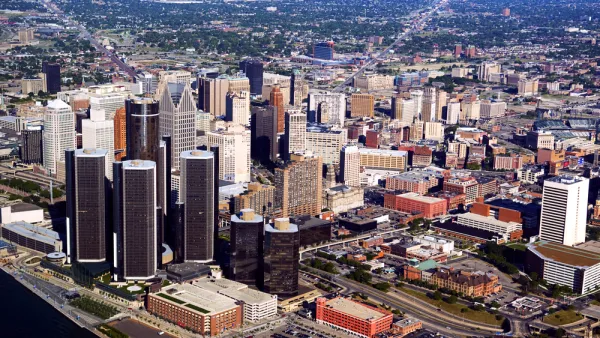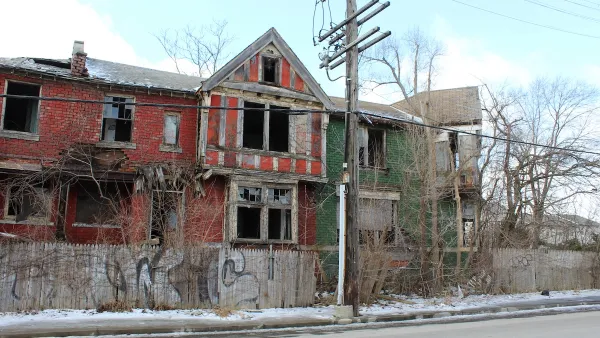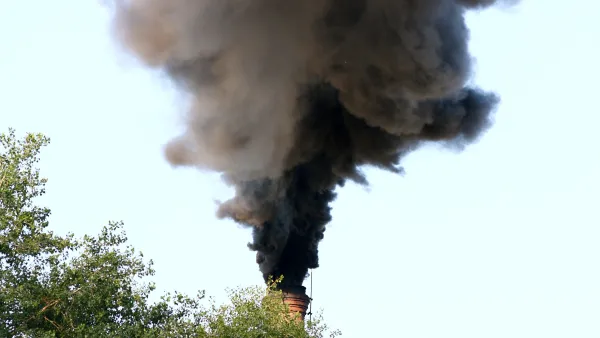Detroit is a city of borders: international borders, borders between cities and not-cities, and borders between the success of the past and the uncertain future, writes Jerry Herron in this essay for Places.
Herron explores Detroit's transition from a "city" to something else, something indicative of the global urban transformation in this first of a three-part series on the current state of the city.
"Detroit may be emptied out, but it is hardly over, nor will it be any time soon, precisely because of the questions that this city/not raises. What could have happened here? Does it have anything to do with the rest of America? Such questions are particularly pressing just now, as the world's population - at some point in 2008 - crossed a border never yet traversed by humans, with the majority of us becoming urban for the first time in history.
And that is just where Detroit's relevance lies. It is not only the busiest border crossing in the United States - literally - thanks to the volume of Canadian–American trade that passes through by water and rail and highway, but the busiest border in another, perhaps more crucial sense. Detroit sits precisely at the border of city and not-city; its condition renders the conflict between the natural world and the built environment in a specially forceful way, as Solnit points out. Here, the fearful energy released by a city in decay raises questions not only about the economic and governmental systems that produced Detroit (and America), but also about the humanity of citizens so transformed by urbanism that they can visit upon each other all the miseries and cruelty locally deployed. It's enough to make a person wonder, and especially to make Americans wonder, and maybe the rest of the world wonder too, as we all verge on a global urbanism and the city/not opposition achieves universal relevance. We wonder how so much that is valuable, in both material and human terms, could be so quickly and violently squandered. And we wonder at the cost - the waste and cruelty, and what the city has to do with it all, and what this place might portend. "
FULL STORY: Borderland/Borderama/Detroit: Part 1

Analysis: Cybertruck Fatality Rate Far Exceeds That of Ford Pinto
The Tesla Cybertruck was recalled seven times last year.

National Parks Layoffs Will Cause Communities to Lose Billions
Thousands of essential park workers were laid off this week, just before the busy spring break season.

Retro-silient?: America’s First “Eco-burb,” The Woodlands Turns 50
A master-planned community north of Houston offers lessons on green infrastructure and resilient design, but falls short of its founder’s lofty affordability and walkability goals.

Test News Post 1
This is a summary

Analysis: Cybertruck Fatality Rate Far Exceeds That of Ford Pinto
The Tesla Cybertruck was recalled seven times last year.

Test News Headline 46
Test for the image on the front page.
Urban Design for Planners 1: Software Tools
This six-course series explores essential urban design concepts using open source software and equips planners with the tools they need to participate fully in the urban design process.
Planning for Universal Design
Learn the tools for implementing Universal Design in planning regulations.
EMC Planning Group, Inc.
Planetizen
Planetizen
Mpact (formerly Rail~Volution)
Great Falls Development Authority, Inc.
HUDs Office of Policy Development and Research
NYU Wagner Graduate School of Public Service




























